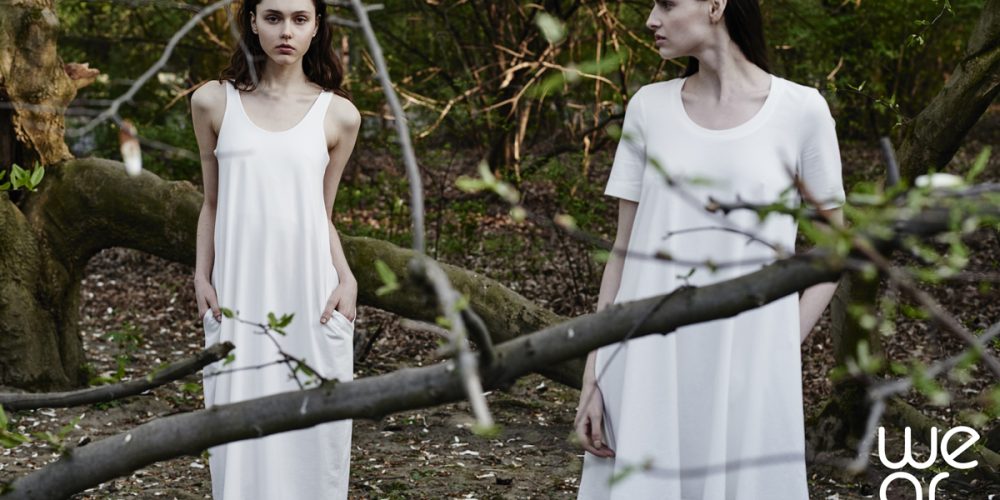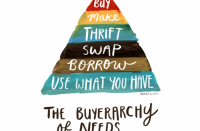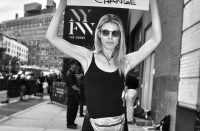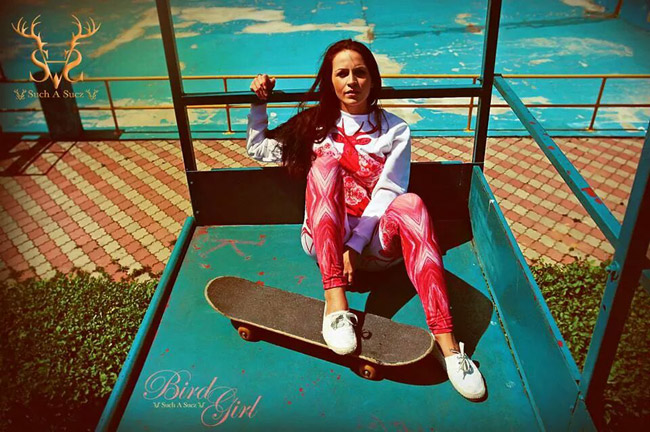Sad and grey: this is how I remember the Poland of the late 1980s and the early 90s. As a child, I felt overwhelmed by the depressing cityscapes and monotonous, boring design shaping the reality around me. Everything looked kind of the same: no originality, no uniqueness, no style – just a frustrated, tired crowd waiting for a change. The natural human ability to create beauty was almost completely blocked. Imagination was the only safe space to create with no limitations.
Sad and grey: this is how I remember the Poland of the late 1980s and the early 90s. As a child, I felt overwhelmed by the depressing cityscapes and monotonous, boring design shaping the reality around me. Everything looked kind of the same: no originality, no uniqueness, no style – just a frustrated, tired crowd waiting for a change. The natural human ability to create beauty was almost completely blocked. Imagination was the only safe space to create with no limitations.
Luckily, the change came fast enough! Solidarity is how it all started. In 1980, Polish workers including Lech Wałęsa founded Solidarity, a famous Polish trade union that represented interests of the labouring class and fought openly against communists. Solidarity managed to not only negotiate with the communist government, but also lead the country to democracy. After a decade of struggling, Poland was ready for first democratic elections: Lech Wałęsa was chosen as its president in 1990. Democracy offered a creative world of freedom and the promise that anything was possible. This hope coloured not only the people’s thoughts, but also their clothes.
Slowly, the borders opened for intercultural exchange. Polish visual artists and fashion designers travelled abroad, finding inspiration in Western Europe. Gradually, they found their own style, a mix of Western trends and Slavic temperament.
No longer afraid of innovation, Polish clothing designers such as Małgosia Bochenek (Boho), Gosia Sobiczewska (ESTby Es.) and Grzegorz Matląg (Maldoror) have become recognized worldwide for sustainable design that emphasizes respect for people and nature alongside originality. The Polish fair trade fashion market is small but growing, as society becomes more ecoconscious and the demand for such products rises.
Now, 25 years after transformation, Poland is a different country. I am proud to have witnessed these amazing changes in both politics and culture, and happy to share three key ingredients in the success of Poland’s sustainable fashion industry.
Unlimited creativity
After being separated from the rest of the world for so many years, Polish fair trade fashion designers are restless, open and creative. Grzegorz Matląg (Maldoror) suggests that such abundant creativity is a positive consequence of being extremely practical and facing many limitations at the same time. You learn to use whatever pops in your hands, you do not complain, just put things together and create. This alternative kind of thinking often results in unique designs that customers love. Maldoror designs are raw and rather simple, often looking like they are made in a rush, unfinished “sketches.” Avant-garde cuts combined with high-quality textiles create outstanding and eye-catching projects.
High quality
After many years of stagnation, Poland’s textile business is developing extremely quickly. Polish companies are famous for producing high quality fabrics. Alexandra Kościkiewicz (Alexandra K) offers the highest quality vegan fashion, recognized worldwide. Fair trade sustainable fashion brands like BOHEMA CLOTHING, Slogan Eco Streetwear, Alexandra K or SUCH a SUCZ quickly realized that their clients are only interested in the best quality sustainable goods. The design can be extremely minimalistic, like Wearso.organic’s gorgeous dresses, but the quality is what really counts!
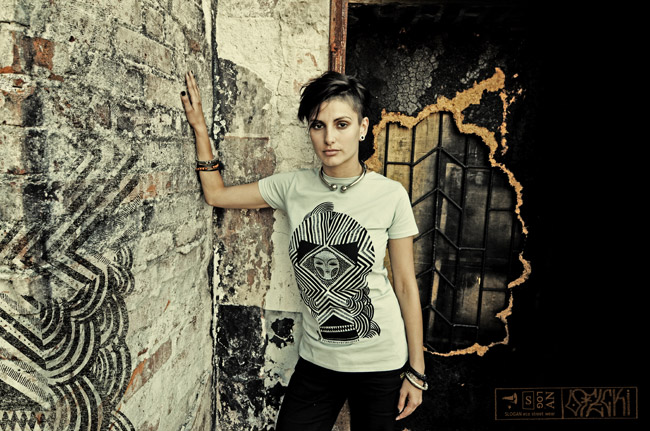
Slogan Eco Streetwear
Energy and synergy
What always surprises me in Poland is the enormous amount of energy that artists and designers share. Just look at the beautiful clothing by Anna Dudzińska. Young Polish fair trade fashion designers are a new generation of people who have the power to fight for sustainable fashion. The spectacular success of brands like Wearso.organic shows that there are no limitations for high-quality fashion design produced with respects to the environment. Using organic cotton and caring for employees are the basic principles for Aleksandra Waś (Wearso.organic), who is always interested in the manufacturing chain. She chose to create healthier, sustainable products that are created with no harm to anybody.
Slogan Eco Streetwear cares for both environment and society. They have high ecological and labour standards that are confirmed by credible certificates and attestations for their products. Handcrafted details, vegan materials and sustainable production are the most important aspects of designing also for brands like BOHEMA CLOTHING or Alexandra K. Their online manifestos are not only passionate, but also uncompromising.
At the same time, there are a couple of inspiring initiatives that bring fair trade fashion lovers, activists and designers together. Organizations like Clean Clothes Poland and the Buy Responsibly Foundation provide significant support for Polish fair trade market. Together, they introduced a Fair Fashion? mobile application, which is now available in Polish. Clean Clothes Poland always supports events promoting sustainable fashion like WearFair Fashion Show in Łódź (2012) or Łobzowska Studio Fashion Day in Kraków (2015). The Buy Responsibly Foundation created also the Good Shopping Guide, the first online consumer guide in Poland with a ranking focused on environmental impact and social responsibility.
Slowly, Polish cities are becoming home for new initiatives like the Slow Fashion Cafe in Kraków, where you can sew, recycle or upcycle cloths while enjoying a piece of homemade tart. It seems to be a perfect environment for building consumer awareness.
I am happy to say goodbye to the “old times” and celebrate the inspiring energy and vibrating synergy within Polish environment-friendly fashion business. I wish all the designers the best of luck and also would like to encourage all of the readers to experience and remember Poland, not as a country of kiełbasa and pierogi, but as a fashion-forward place that is famous for high-quality textiles and remarkable fair trade clothing.
If you are hungry for clothing inspired by Polish folklore, take a look at fabulous designs by Aneta Larys-Knap (FOLK DESIGN). Together with Gosia Sobiczewska (ESTby Es.), Slogan Street View and SUCH a SUCZ, she recently presented her projects at the Fur Free Fashion Show 2015 in China.
Joanna is a visual artist and an art educator with a PhD degree in visual arts. She loves working with people, inspiring them and at the same time, getting inspired herself. She likes to be in constant motion; learning and developing herself as a teacher, yet also as a creativity coach, graphic designer and photographer. Currently she works as the ESAC Membership Coordinator at A\J’s office.


